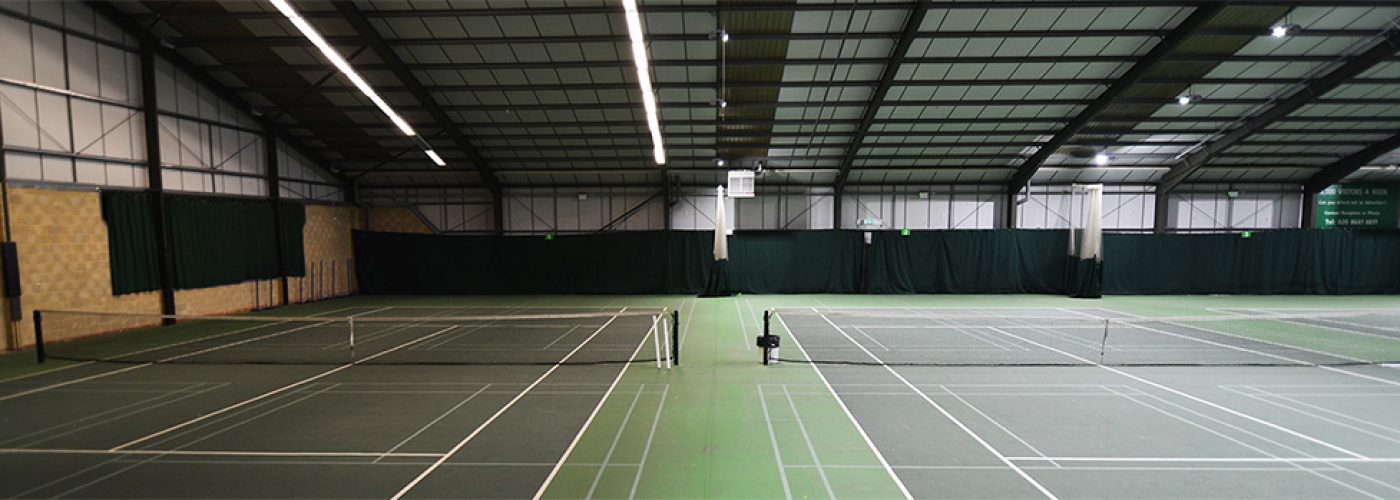There was a time when commercial lighting meant constant maintenance, high costs and enormous inefficiency, and all that without any guarantee that the lights would be very bright. Industrial lighting was a necessity, but good options were thin on the ground. Luckily, those days are over. Today’s commercial LED flood lights are cutting edge, offering features previously thought impossible and revolutionising their surroundings. Let’s look at one sports village in Sutton, where tennis and badminton courts were transformed by the adoption of high-quality LED lighting.
Better quality light
Like most sports, both tennis and badminton need high levels of light in order for players to perform well. There should be minimal glare and shadow, and the court should be as evenly lit as possible. Yet the courts at Sutton Sports Village were dim and in desperate need of an upgrade. Fitted with fluorescent tubes, light level readings were only averaging around 300 lux. The presence of darkness made it hard to spot balls or shuttlecocks until it was too late.
The UniBay lighting fixture was designed by UK lighting manufacturers Pulsar in collaboration with England sports bodies and players, and so was a perfect choice for Sutton’s revamp. Whilst most LED lights run using Pulse Width Modulation (PWM), the UniBay130 instead uses continuous, flicker-free light.
PWM has a strobing effect on fast-moving objects such as a tennis ball, causing a major distraction for players and coaches, whereas the Unibay solution ensures that Sutton’s players can keep their eyes on the ball at all times. As an additional benefit this lighting emits less heat, ideal for somewhere where people are already working up a sweat. The UniBay is recommended and used by professional tennis players because of the superior quality of light that it produces.
Significantly cheaper
Sutton was paying a premium for its low-quality, high-heat lights. Running costs for the entire club were £31,449 per year, meaning lighting was eating up valuable resources which could be better spent elsewhere.
Replacing the commercial lighting produced mammoth savings. The installation of the UniBay130W fittings cut total costs to £7,727 – a £23,721 annual reduction in expenditure – so the centre was left the ample budget to invest in more exciting areas of the sports centre.
More environmentally friendly
Before making the switch, the carbon footprint of the Sutton Sports Village was at a high level. Per four courts, the amount of carbon dioxide released into the atmosphere as a result of daily running was 141,523 kg a year. A vast emission of greenhouse gas is common in this sector – the UK’s sports sector buildings emit of a total of 10 million tonnes of CO2 every year – and often a major contributor is commercial lighting.
By swapping out fluorescent tube lighting for 16 UniBay130W fittings per court, Sutton Sports Village’s emissions and energy use were cut by 75%. The centre has lowered its environmental impact drastically, whilst improving its light quality and thus its appeal to members. A win all round.
Worth the switch
So often upgrading lighting is put to the bottom of the pile, but as Sutton has shown, it makes a real and instantly-noticeable difference to quality, cost and carbon footprint. For an easy way to transform your workspace, switching to high-quality LED lighting is absolutely worth it.






